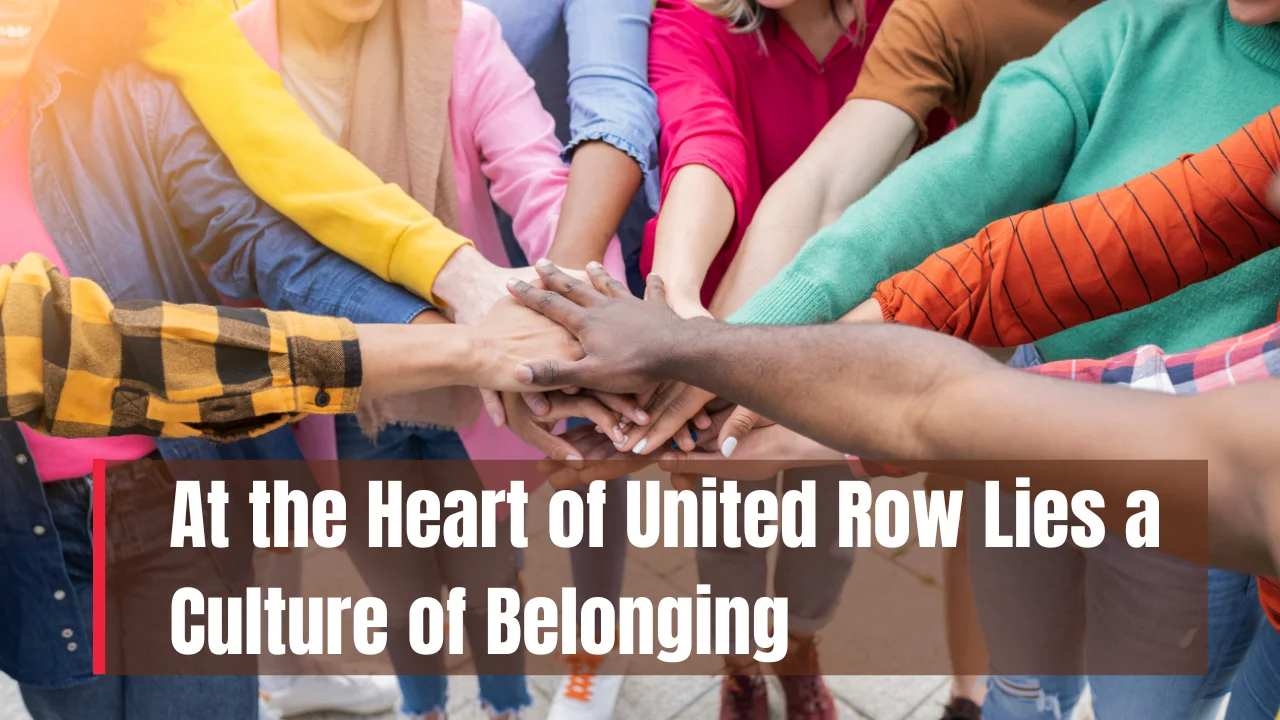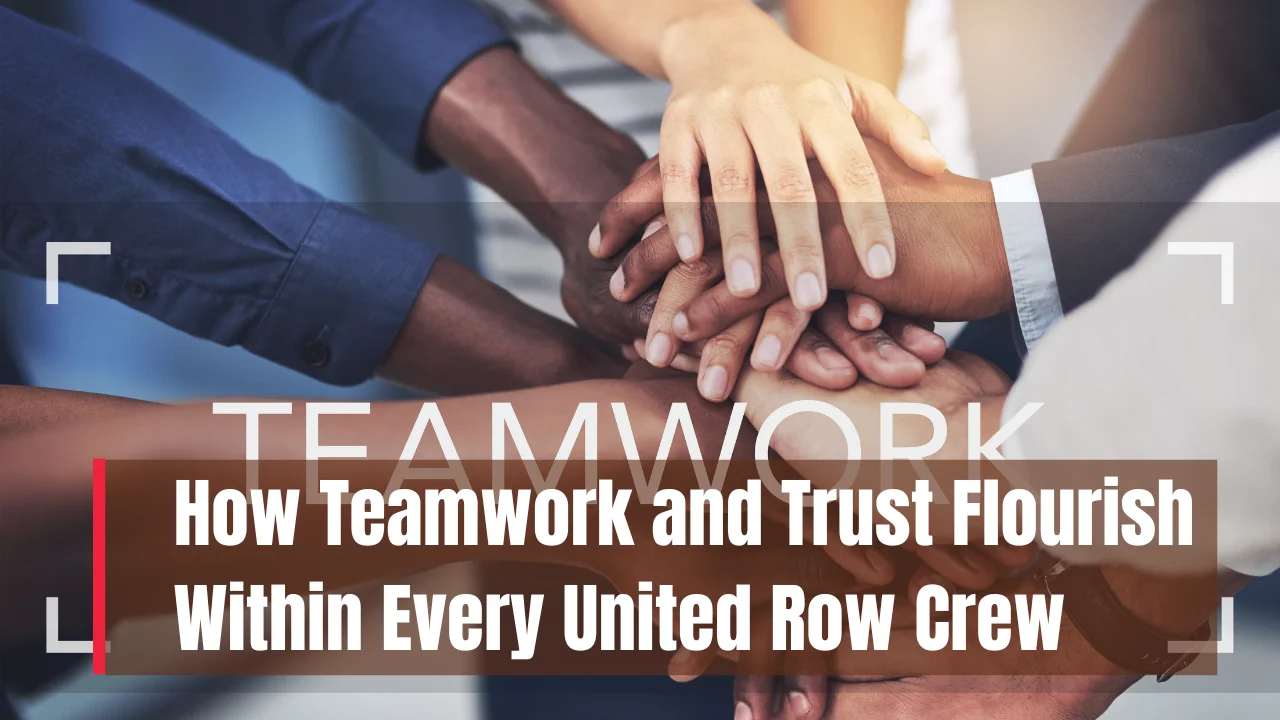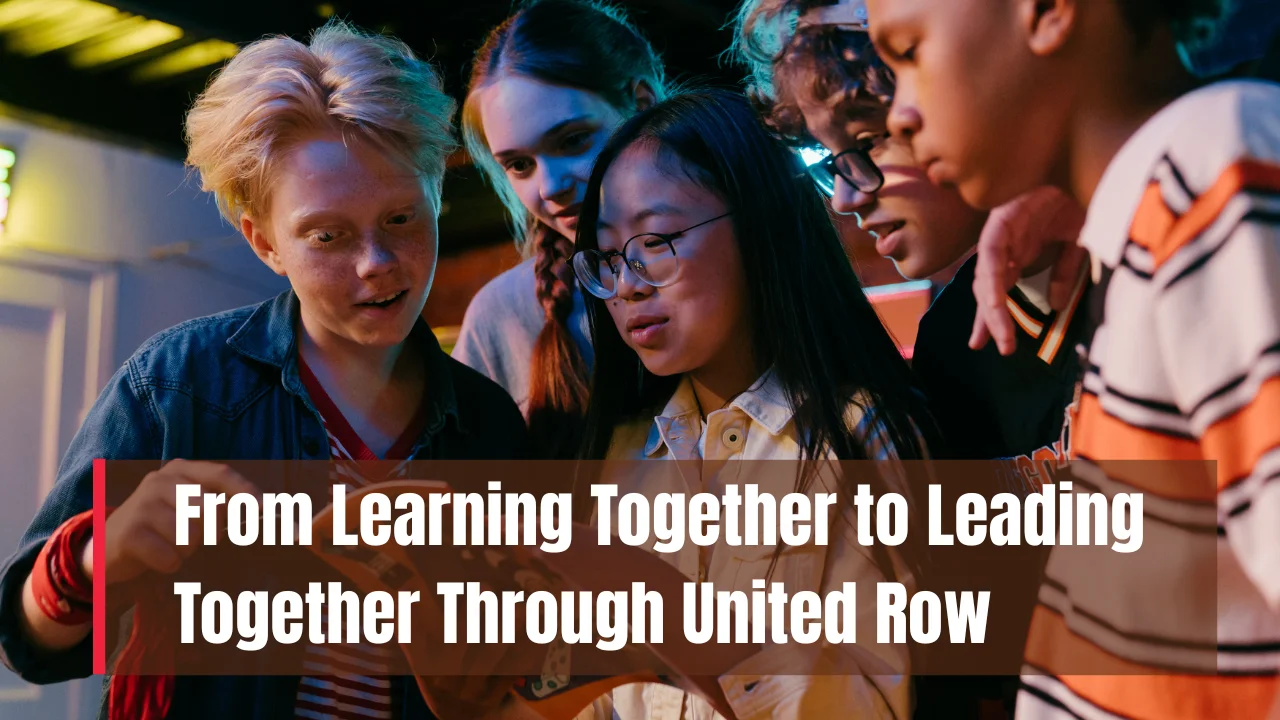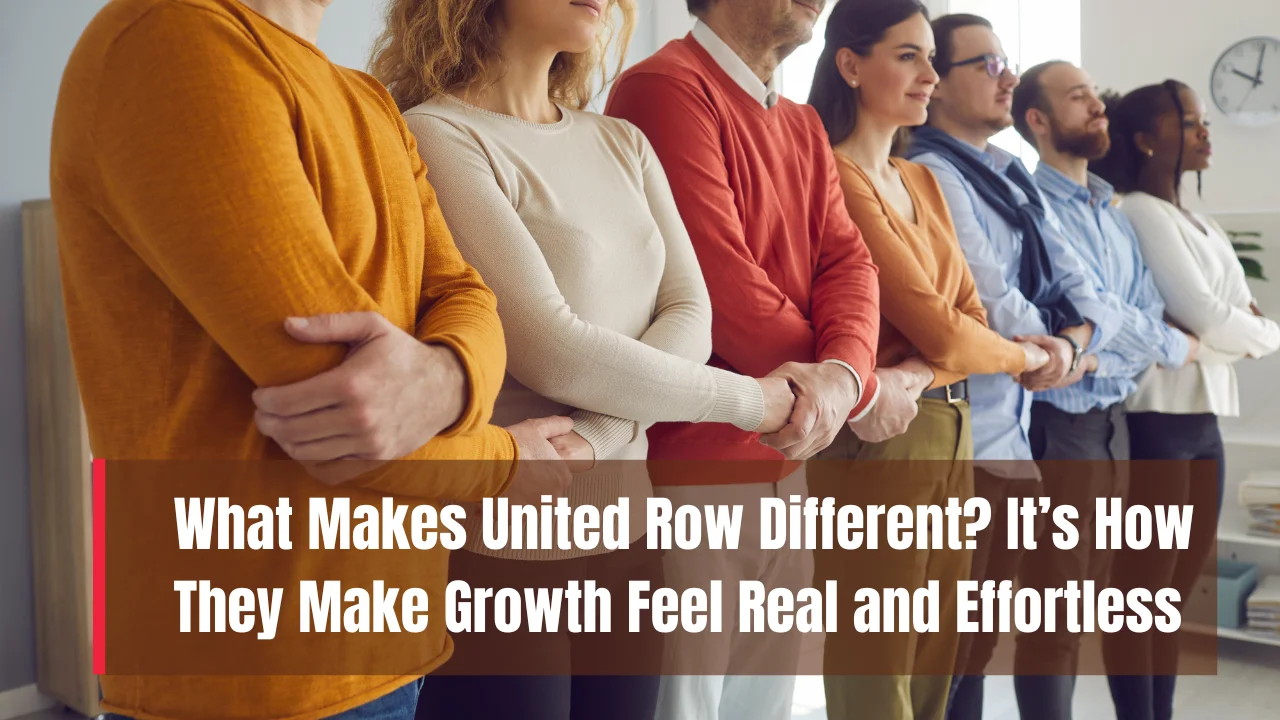A Culture of Belonging Rooted in Unity: Culture of Belonging is the quiet engine behind the world’s most successful workplaces. It’s not about office perks or surface-level diversity; it’s about creating an environment where every person feels safe, seen, and valued. At United Row, this ideal isn’t just aspirational — it’s woven into the day-to-day experience of its people.
The following article takes a deeper look into how United Row built and sustains a workplace that promotes inclusivity, trust, and shared purpose. Through genuine employee connections, open communication, and empathetic leadership, United Row is demonstrating what it truly means to cultivate belonging in a modern organization.
A Culture of Belonging Rooted in Unity
At the core of every thriving company is a strong culture of belonging — a space where employees don’t just work but feel genuinely part of something greater. United Row doesn’t just focus on performance or profits; it focuses on people. This culture has become their greatest asset, building a sense of mutual respect, emotional safety, and trust throughout the organization.
Whether you’re a new hire or a senior executive, United Row ensures that everyone feels they have a seat at the table. Through intentional policies and human-first practices, this culture empowers employees to bring their authentic selves to work, leading to better collaboration, higher engagement, and a shared sense of ownership.
Overview of United Row’s Culture of Belonging
| Aspect | Description |
| Core Value | Belonging, respect, and inclusivity at every level |
| Communication Style | Open, honest, and two-way dialogue encouraged |
| Leadership Approach | Empathetic, accessible, and supportive leaders |
| Hiring Practices | Prioritize cultural fit and value-aligned individuals |
| Employee Engagement | Activities, feedback loops, and mentorship to boost connection |
| Cultural Initiatives | Celebrations of diversity, awareness events, and inclusive programming |
| Collaboration Culture | Cross-team synergy with trust and transparency |
| Long-term Impact | High retention, strong morale, and innovation through inclusive thinking |
What Is a Culture of Belonging?
A culture of belonging is more than a warm atmosphere; it’s an intentional design of workplace behaviors, language, and systems that make every individual feel like they matter. It’s where people don’t need to hide parts of their identity or question whether they’re truly accepted. In such cultures, differences are embraced and inclusion isn’t performative — it’s felt.
United Row has built a workplace where authenticity is a strength. Every employee is encouraged to show up as themselves, contribute freely, and be part of shaping the culture. This creates a space where collaboration flows naturally, creativity thrives, and people stay not just for the paycheck but for the shared purpose.
Why It Matters in the Workplace
Workplaces thrive when people feel emotionally safe. Without a genuine culture of belonging, companies risk disengagement, miscommunication, and high turnover. Belonging increases employee loyalty, reduces burnout, and builds a workplace that’s not just productive, but fulfilling.
At United Row, fostering belonging has been directly linked to better business outcomes. Employees take initiative, support one another, and solve problems with shared enthusiasm. In contrast to environments driven by fear or hierarchy, United Row’s inclusive approach inspires resilience and innovation.
How United Row Built a Culture of Belonging
United Row’s journey toward a strong culture of belonging began with listening. The leadership didn’t assume what people needed — they asked. Through surveys, open forums, and personal check-ins, they gathered real employee insights. That information became the foundation for building better structures and policies.
The company redefined onboarding, mentorship, and performance reviews to reflect inclusive values. Team rituals were redesigned to ensure every voice could be heard, not just the loudest. Rather than one-off diversity campaigns, United Row invested in long-term strategies that truly uplift people and make them feel part of something meaningful.
Simple Practices That Make a Big Difference
Here are two simple yet powerful ways United Row cultivates belonging every day:
- Listening Circles and Open Dialogue: Every employee, regardless of role, can participate in structured spaces where they’re encouraged to share thoughts without fear. These sessions often lead to meaningful changes and stronger team bonds.
- Mentorship and Growth Support: United Row pairs team members with diverse mentors, focusing not only on skill-building but emotional support. This strengthens internal relationships and builds confidence across all levels.
These practices show that belonging isn’t built through big gestures alone — it’s shaped by consistent, human moments.
Diversity Is Welcomed and Celebrated
While diversity brings different perspectives, belonging ensures those perspectives are respected. United Row celebrates all aspects of identity, from cultural heritage to neurodiversity, gender expression, and beyond. This is not about ticking boxes — it’s about creating systems where uniqueness adds value.
They hold space for celebrations, learning sessions, and moments of recognition that highlight different experiences and voices. In this way, diversity and inclusion are tied to everyday company rhythm, not occasional events. This consistency is what deepens the sense of belonging for every individual.
Employee Stories That Reflect Belonging
Real belonging can’t be faked — and it shows in employee testimonials. At United Row, people often say they’ve never worked anywhere that felt so accepting. Newcomers speak about feeling welcomed from day one, while long-timers say the culture has only deepened over time.
One employee shared: “I don’t have to mask who I am. My team listens, cares, and values my input. That changes everything.” These voices represent the emotional reality behind the company’s culture. It’s not about slogans. It’s about how people feel walking through the door every morning.
Leadership That Leads With Empathy
Leaders at United Row don’t operate from a distance. They engage with teams personally, understand challenges, and advocate for people even when it’s not easy. Empathy is part of how performance is measured, and managers are trained not just to hit goals — but to lead with care.
This leadership style has been a key driver in sustaining the culture of belonging. When employees know their managers genuinely care, trust builds naturally. That trust becomes the glue holding teams together, especially through uncertainty or change.
Key Benefits of a Culture of Belonging
The long-term outcomes of investing in belonging are undeniable:
- Higher Engagement: Motivated teams with purpose.
- Improved Retention: People stay where they feel valued.
- Stronger Collaboration: Teams support each other and share freely.
- Increased Creativity: Safe spaces produce bold ideas.
- Positive Brand Identity: Companies known for inclusivity attract top talent.
Belonging isn’t just good for people — it’s good for business.
How You Can Build a Culture of Belonging
Even if you’re just starting, here are some steps to begin shaping your own culture of belonging:
- Ask, don’t assume: Let people tell you what they need.
- Celebrate uniqueness: Not just differences, but the value behind them.
- Model empathy: Let leadership show what belonging looks like.
- Encourage feedback: Make it safe to speak up.
- Stay consistent: Belonging is built over time, not overnight.
These small steps lead to meaningful shifts when done with care and purpose.
Final Thoughts
The culture of belonging at United Row isn’t a trend or initiative — it’s a way of being. It guides how people treat each other, how leaders lead, and how teams thrive. It turns the workplace into a community, and work into something more than a task — a shared mission.
If you’re looking to create a space where people thrive and stay for more than just the paycheck, start by asking: Do your people feel like they belong?
Let us know what belonging means to you. Leave a comment, share your thoughts, or explore more ideas around human-first workplaces and connection-driven culture.












